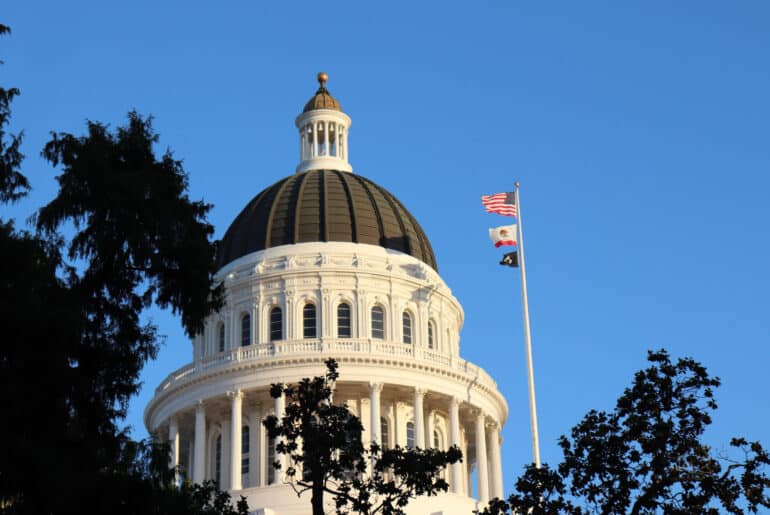California Senate Bill 253 (SB 253), also known as the “Climate Corporate Data Accountability Act”, achieved a significant milestone by passing the state’s Assembly on September 12, 2023, marking a crucial moment in the establishment of mandatory emissions reporting legislation on the state level.
CA SB 253 is one of two separate bills of the Climate Accountability Package – SB 253 and SB 261 – which both aim to improve and increase corporate transparency.
Focusing on SB 253, here we outline highlights of this historic bill, what organizations it impacts, and what you can do to prepare for it.
WHAT DOES SB 253 REQUIRE?
The Climate Corporate Data Accountability Act (SB 253) applies to both public and private companies that operate in California and whose annual revenues exceed $1 billion. After undergoing amendments, the final bill mandates annual emissions reporting from all scopes: direct emissions (Scope 1), emissions associated with purchased electricity (Scope 2), and indirect emissions linked to value chains (Scope 3).

These rules would be rolled out over time, starting with Scope 1 and 2 emissions being mandated in 2026, and Scope 3 emissions being mandated in 2027. Reports must adhere to Greenhouse Gas Protocol (GHG Protocol) standards for measurement and reporting. The bill also requires companies to obtain third-party assurance for emissions reporting, with limited assurance beginning in 2026 for Scope 1 and 2 emissions, increasing to reasonable assurance by 2030, and limited assurance for Scope 3 emissions beginning in 2030. This means:
-
- Limited assurance is the baseline level of assurance where an auditor does a review to state they are not aware of material modifications that should be made.
- Reasonable assurance is a higher level of assurance and is more rigorous and intensive that requires evidence to demonstrate the reporting is free of significant misstatements.
WHAT CAN I DO TO PREPARE?
SB 253 represents a significant step toward comprehensive emissions reporting, with far-reaching implications for corporate accountability in addressing climate change. Thousands of companies doing business in California will need to disclose their Scope 1, 2, and 3 greenhouse gas emissions in the coming years. Companies will need to be confident in their reporting and have data management structures in place to assist with emissions reporting and verification.
We recommend that companies:
- Develop a comprehensive GHG inventory inclusive of your operations and value chain emissions (Scope 1, 2, and 3).
- Establish a data management framework for your data to prepare for verification.
- Monitor upcoming developments with CA SB 253 and the U.S. SEC proposed rulings.
WHAT’S NEXT FOR THIS BILL?
With passage in both the Assembly and Senate, SB 253 awaits Governor Newsom’s signature. He has until October 14th to sign, veto, or allow the bill to become law without his signature, and he has announced his intention to sign the bill into law in the upcoming days.
This development aligns with federal efforts, as the SEC works on finalizing climate-related disclosure regulations for publicly traded companies. Notably, California’s legislation would reach beyond the proposed SEC rules in its comprehensiveness, covering both private and public companies. Moving forward, we will continue to see a shift from voluntary reporting to regulated requirements from a state, federal, and international level.
The Stok team is here to help you prepare for disclosures and understand the upcoming regulatory requirements of CA SB 253 wherever you are on your climate journey. Reach out to discuss with our carbon experts.




